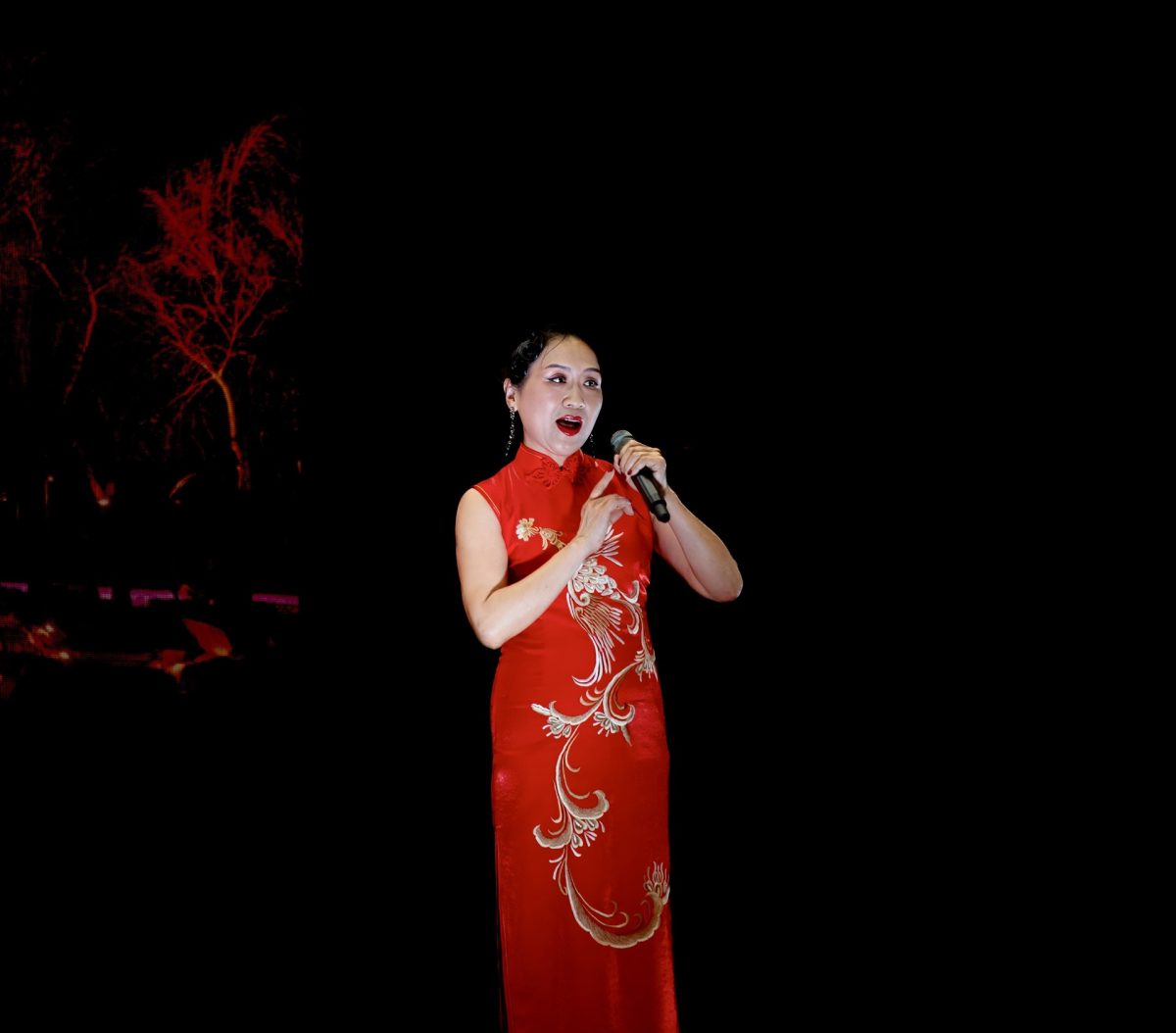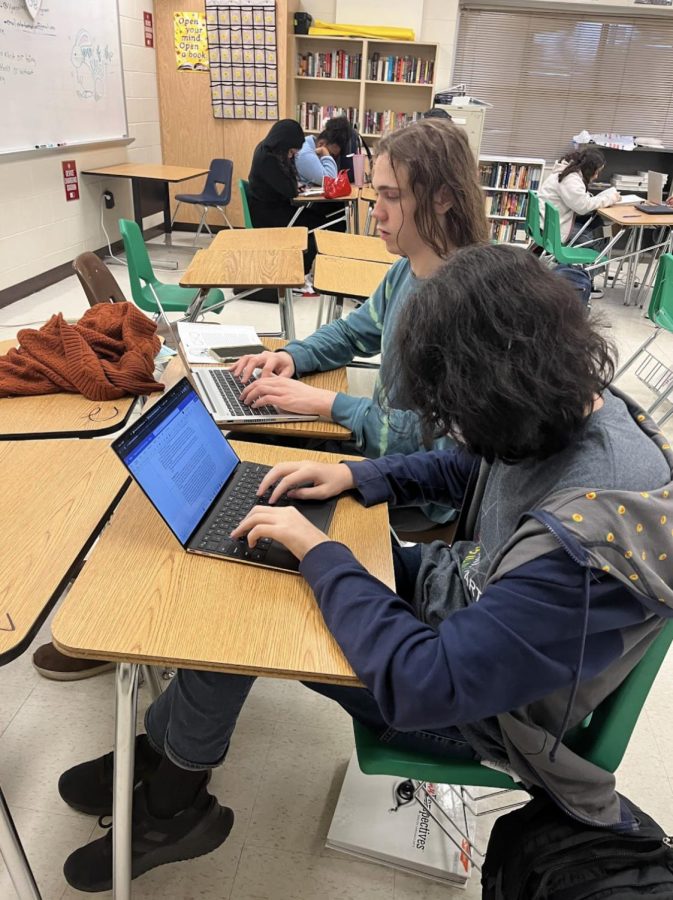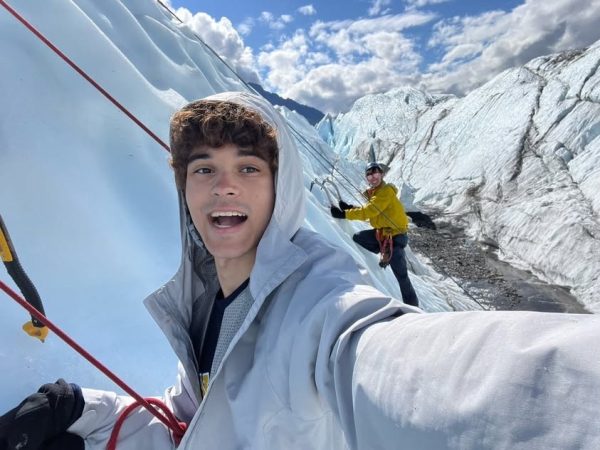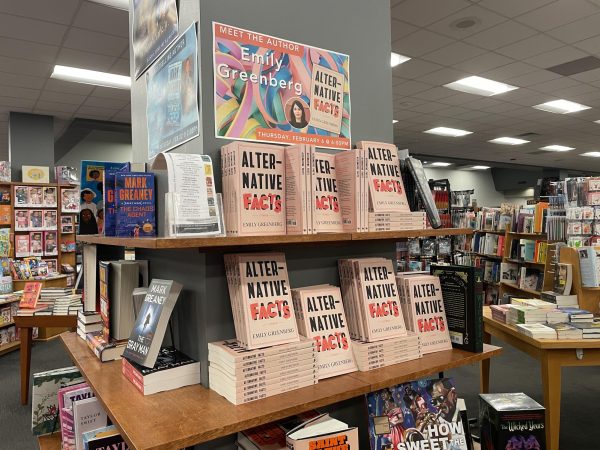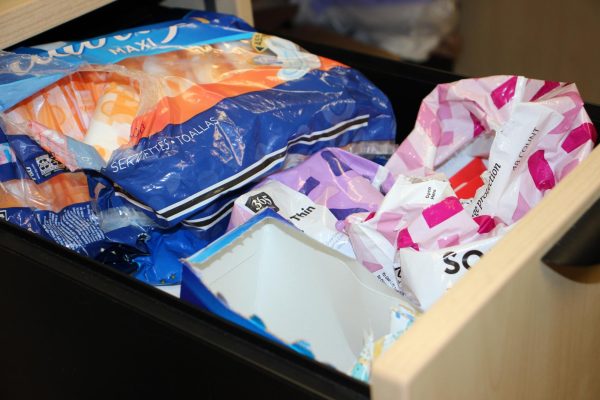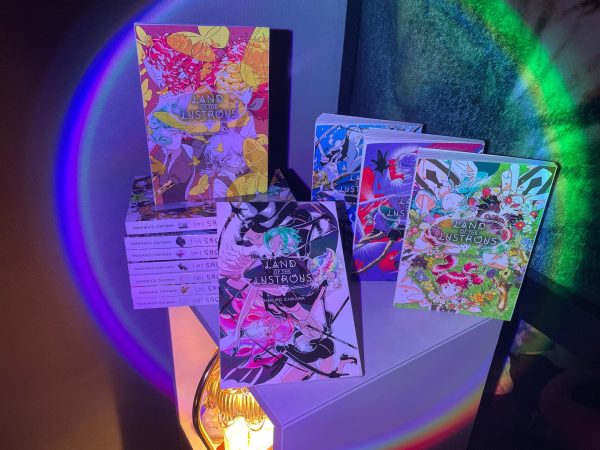Dunn’s genre literature class diversifies high school literature
Eli Duncan (12) and Fields Bell (11) work on a writing assignment. Students enrolled in the genre literature class complete objective, analysis-based writing assignments as well as creative writing assignments, like rewriting sections of text from short stories studied in class.
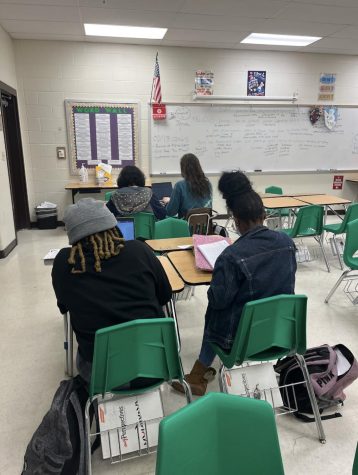
High school literature is generally perceived as painfully predictable. Many have memories of poring over “Hamlet,” “Frankenstein” and “The Adventures of Huckleberry Finn” searching for any sign of modernity in a sea of Old English and Pike Country dialect. As students struggled to apply their own interests and hobbies to high school literature, English teacher Ellen Dunn recognized the absence of alternative genres in standard curriculums as an opportunity for a new class.
Because the class already existed within the Memphis-Shelby County Schools district, Dunn endured little administrative difficulty pulling the class together. She was given the freedom to build a repertoire for the class that she saw fit and plans to adjust the pieces used for the class periodically.
“I was told well, ‘You could focus on whatever genre you want,’” Dunn said. “And I love speculative fiction, which is … fiction that takes place in any world that is not reality. So it could be fantasy, horror, science fiction, even historical fiction, technically speaking … [and] I feel like that’s something we don’t really get to read a lot of in high school. So I wanted to kind of explore genres that we might not necessarily get to interact with otherwise.”
The approach to interpreting literature in the genre literature class differs from the norm as a result of alternative genres occupying most of the material covered; ideas like subplots, character archetypes and broader relations between separate works are examined carefully.
“Even in traditional creative writing classes, I feel like you’re not exploring a lot of subgenres … maybe you’ll read like ‘Frankenstein’ or something, but you’re not really taking a look at it with the lens of like, ‘Let’s analyze the subplots and the tropes and the character archetypes,’” Morgan Yates (11) said.
To facilitate this coverage of lesser-addressed literary elements, a small class size allowed the first semester members of the class to bond over the content. Though Dunn hopes to see class sizes grow over time, many students cite the current intimate environment as an important element in the open-minded spirit of the class.
“It’s a very fun class … and it’s a very close knit community,” Riley Reeves (11) said. “There’s people who I’ve never spoken to that I’m really good friends with now because of that class. It was way easier because you get comfortable with the people faster, and so you feel more comfortable sharing your opinions on pieces.”
For some students, their experience in the class goes beyond the intriguing content and assignments. Dunn has a positive reputation among her existing English and creative writing students, with some emphasizing her caring nature as yet another reason to give the genre literature class a try.
“Try it and maybe you’ll like it,” Alanna Pinkney (11) said. “Because it is a newer class, I would like for everybody to experience it for at least one day or at least a week. Give it a chance and take some time to actually talk with the teacher personally. If you say, ‘Oh, I don’t think this part of the class might work for me,’ she’ll listen, [because] I think she’s a teacher that really loves teaching and really [wants to see] her students grow.”
Although there is never a guarantee that each student will adore each work utilized in any class, Dunn acknowledges that negative responses to a work are essential in the study of literature. By encouraging all types of conversation surrounding the less-appreciated genres in high school literature, Dunn is housing a literature class that stands apart from traditional english curriculums.
“You know, my students will tell you [that] last semester they did not enjoy every single piece,” Dunn said. “Some of [them] we were like, “Alright, let’s discuss,” and they ripped them to shreds. And that’s okay, right, that’s the point: to dig into it. ‘What is working? What’s not working? What does this mean to us? How does this reflect some aspect of our condition?’ And that’s what I love about literature. It’s all about being a human.”
Your donation will support the student journalists of White Station High School. Your contribution will allow us to purchase equipment and cover our annual website hosting costs.











